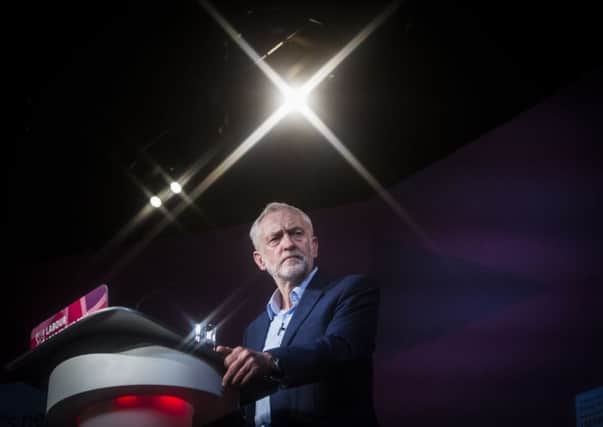Andrew Vine: Rail strikes rekindle memories of unmourned decade


Suddenly, we seem to have stepped back to the bad old days of the unlamented 1970s, with their industrial strife and hair-shirt left-wing politics.
How else to see the wave of strikes threatening to paralyse the rail system as the RMT, TSSA and Aslef flex their muscles in a manner that would have gladdened the hearts of a lost generation of union barons?
Advertisement
Hide AdAdvertisement
Hide AdThose chain-smoking dictators of the coal, steel and rail industries, who used to turn up at 10 Downing Street for beer and sandwiches in the Wilson and Callaghan years as an inducement not to hold the country to ransom yet again, might well be applauding from the great celestial congress in the sky at what is happening.
This is the sort of nostalgia that we don’t need. The unfortunate commuters to London obliged to use the Southern rail network have already been transported back 40 years thanks to a wave of stoppages and disruptive action.
Some passengers have even seen their jobs come under threat as a result, because persistent lateness – even though it is not their fault – has got them into trouble with employers.
One businessman I know had to allow three hours for a journey that should have taken 30 minutes, to be reasonably sure of making a meeting on time.
Advertisement
Hide AdAdvertisement
Hide AdAnd now, like a platform announcement that nobody wants to hear, that same re-run of the 1970s is heading our way with the first of a series of strikes on Friday affecting Virgin Trains, which operate the East Coast main line. Rail unions apparently don’t care that it will harm Yorkshire businesses at a time when uncertainty and disruption are the last things they need, or damage our tourist industry in its peak month of the year.
There’s something else about the trouble on the railways which is uncomfortably reminiscent of the past.
It is the co-ordinated whipping-up of regional disputes to create a national problem. First Southern, then Eurostar, now Virgin and possibly Northern, Merseyrail and Scotrail.
This is old-fashioned militancy, the determination to pick fights constantly, underpinned by a political agenda, renationalisation of the railways, which is about as likely as 12 pennies to the shilling making a comeback.
Advertisement
Hide AdAdvertisement
Hide AdThere are those within the rail unions who relish that their industry is the last bastion of old-style industrial muscle. Coal, which once wielded massive union power is gone and steel is a shadow of what it was. Only the rail unions remain, and their tactics are straight out of the 1970s textbook on causing maximum disruption.
Never mind that the rest of us who remember that decade do so without much affection. We shudder to recall that three of the most popular personalities on television were Jimmy Savile, Rolf Harris and Stuart Hall. Or that industrial disputes regularly plunged us into the darkness of power cuts.
There was nothing golden about a decade of hyper-inflation when the then Chancellor, Denis Healey, had to go cap-in- hand to the International Monetary Fund for an emergency bailout, or stinking, uncollected rubbish piled up in the streets during the winter of discontent.
Yet to the rail unions running strike ballots, those years plainly remain an inspiration.
Advertisement
Hide AdAdvertisement
Hide AdPerhaps that is not surprising, given the retro atmosphere prevailing in the Labour movement.
Jeremy Corbyn belongs as firmly to the 1970s as one of those lava lamps in which globules of oil float up and down.
His hard-left views were forged then, and have not changed, which lies at the heart of his appeal to those who support him so fervently. That is especially true of his younger supporters, to whom such views appear fresh and not a relic of a bygone era.
If we are in for an autumn of discontent on the railways, and Mr Corbyn retains the leadership of Labour, which seems likely, we can expect no condemnation from him of strikes, however many businesses and employees are affected.
Advertisement
Hide AdAdvertisement
Hide AdYet throwbacks to an age of industrial strife that Britain firmly rejected when it elected Margaret Thatcher in 1979 have no place in 2016.
The weary shrugs with which the public greeted waves of strikes back then have been replaced by a sense of anger and injustice that rail unions should have the effrontery to make life more difficult for people trying to get to work than it already is.
The country needs to look forward, not back. There are enough challenges ahead without having to deal with disputes that feel like antiquated attempts at waging political warfare using union members as foot soldiers.
If they are not to face a clampdown on the rules surrounding industrial action by a Government and new Prime Minister that cannot be seen to be held to ransom by it, the rail unions need to accept that the 1970s are, thankfully, long gone.